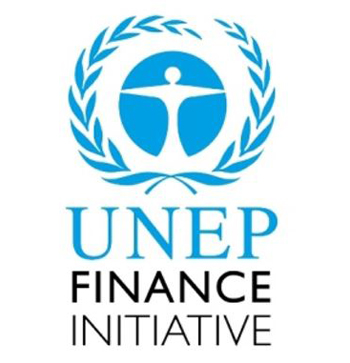
Earlier this week, around 200 delegates gathered at the UN General Assembly in New York, which marked the official launch of the Principles for Responsible Banking, and the beginning of a major partnership between the global banking industry and the UN Environment Programme Finance Initiative (UNEP FI).
At the event, a total of 130 banks - representing more than $47 trillion in assets - signed the Principles for Responsible Banking, a commitment to take a crucial role in helping to achieve a sustainable future.
The principles were developed in recognition of the urgent need for sustainability, and were a joint effort by the UNEP FI and banks including Nordea Bank.
Frank Vang-Jensen, president and group CEO of Nordea, said: “By creating the Principles for Responsible Banking, Nordea and the other founding banks have accomplished a comprehensive framework for banks to collectively address the global sustainability challenges and work towards the objectives of the Paris Agreement and the Sustainable Development Goals.
“I am very proud that Nordea has been able to play such an active part in creating the principles and opportunities for a better society. Together we are on a journey towards a sustainable future.”
Driving action
By signing the Principles for Responsible Banking, the banks are committing to “using our products, services and relationships to support and accelerate the fundamental changes in our economies and lifestyles necessary to achieve shared prosperity for both current and future generations”.
Antonio Guterres, UN Secretary-General, said: “The UN Principles for Responsible Banking are a guide for the global banking industry to respond to, drive and benefit from a sustainable development economy. They create the accountability that can realise responsibility, and the ambition that can drive action”.
The importance of sustainability will be considered at every level of a company from the financing, to investment and advice.
The continuous development of service offerings for consumers to make sustainable choices is considered vital, and includes green mortgages for energy-efficient buildings, green bonds, green corporate loans, and green car loans for electric vehicles.
The six Principles for Responsible Banking are:
- Alignment: Aligning business strategy to contribute to society’s goals, as expressed in the Sustainable Development Goals, the Paris Climate Agreement and relevant national and regional frameworks.
- Impact: Continuously increasing the positive impacts on, and managing the risks to, people and the environment resulting from activities, products and services.
- Customers: Working with customers to encourage sustainable practices and enable economic activities.
- Stakeholders: Consulting, engaging and partnering with stakeholders to achieve society’s goals.
- Governance: Effective governance and responsible banking, demonstrating ambition and accountability by setting impactful public targets.
- Accountability: Reviewing the implementation of these Principles and being accountable for the impacts.
The commitment provides a significant boost for the circular economy, which promises to be a global force for good that also creates a new international market worth trillions of dollars.
The circular economy provides a vision of a more sustainable future as companies move away from the historic business model of ‘take-make-waste’ to a new business cycle, where the life of assets is extended through greater utilisation, reuse and recycling.
There is growing momentum for change, amid warnings from the Intergovernmental Panel on Climate Change that the world must act immediately to avoid an environmental crisis.
For businesses, this means significant change in the coming years, as many countries move towards a zero-carbon economy, where there is less reliance on fossil fuels and a greater focus on sustainable ways of doing business.
Earlier this year, Jaguar Land Rover revealed its investment in a closed loop strategy for its vehicle production to maximise recycling of materials into its next generation models.
The REALITY project will recover aluminium from existing Jaguar and Land Rover vehicles and is being tested on early, pre-production prototypes of the Jaguar I-Pace electric vehicle.
In February, BNP Paribas Leasing Solutions and 3 Step IT announced a European strategic alliance to offer technology leasing solutions and lifecycle management, which will support the circular economy.
The partners will combine their expertise to provide organisations with a complete management service for technology equipment, including consultation, funding, in-life tracking, equipment monitoring and end-of-life management, ranging from data destruction and refurbishment to resale of returned equipment.
The alliance will be effective in the 20 European countries where each of the partners operates, under the name BNP Paribas 3 Step IT.
Swedish furniture giant Ikea has also piloted a leasing service for kitchens and furniture as part of its focus on eliminating waste.
The pilot project in Switzerland is looking at ways for customers to ‘buy, care for and pass on products’ as part of its aim to become a fully circular business by 2030.
A new whitepaper from leading IT services and software company Tieto looks at the role of asset finance companies in the circular economy and features case studies of businesses that are introducing new business models to extend the life of assets and promote recycling and reuse of equipment and resources.
It offers a concise explanation of key issues including:
- What role can the circular economy play in asset finance?
- What are the benefits of a business model that supports the circular economy?
- How are asset finance companies adapting to greener ways of working?
- What are the next steps to ensure organisations can benefit from the potential of the circular economy?
Per Dahlqvist, head of business development and analytics products, credit solutions and services at Tieto, said: “The asset finance industry can play a vital role in these new ways of doing business, through funding and by supporting the processes that enable change.”
View the full version of the Principles for Responsible Banking






